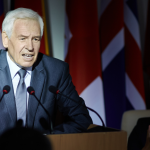Federal Communications Commission (FCC) Commissioner Brendan Carr is at the center of a heated debate over Section 230 of the Communications Decency Act. This section, which protects social media platforms from liability for user-generated content, has been the subject of criticism and debate over its impact on free speech and social media regulation. Carr argues that there is a liberal bias in the platforms’ decisions, which raises questions about the fairness and accountability of technology companies.
Section 230 is often cited as a fundamental pillar of the modern internet, allowing platforms like Facebook, Twitter, and YouTube to operate without fear of being sued for content posted by their users. However, Carr and other critics argue that this protection has been misused, resulting in censorship of conservative voices and content moderation that favors a specific political agenda. This claim of liberal bias on social media platforms is a recurring theme in discussions about free speech in the digital age.
Carr’s position highlights the growing pressure on tech companies to be more transparent about their content moderation policies. A lack of clarity about how decisions are made can lead to distrust among users and the perception that platforms are acting in a biased manner. The FCC, under Carr’s leadership, is exploring ways to reform Section 230 to ensure that platforms are held accountable for their actions while still protecting free speech.
In addition, the discussion about Section 230 and bias on social media is not limited to political speech alone. It also involves issues of user safety and security. Content moderation is a necessary tool to combat misinformation and hate speech, but how it is implemented can have significant consequences for diversity of opinion. Striking a balance between protecting users and preserving free speech is a complex challenge that the FCC and social media platforms must address.
Carr’s position also reflects a broader concern about the role of big tech companies in society. As these platforms become increasingly influential, the need for regulation and oversight becomes more apparent. The FCC can play a crucial role in setting guidelines that ensure that platforms operate fairly and responsibly, without compromising free speech.
The debate over Section 230 and liberal bias on social media also ties into a broader political context. With elections approaching, how platforms moderate content could have a significant impact on electoral outcomes. The perception that certain voices are being silenced could lead to increased polarization and distrust in democratic institutions. How the FCC and tech companies address these issues is therefore crucial to the health of democracy.
How social media platforms respond to criticism of bias and pressure for changes to Section 230 will be a defining factor in the future of internet regulation. Companies need to find ways to address concerns about content moderation while maintaining the trust of their users. Transparency in moderation policies and a willingness to listen to user concerns are important steps toward building a fairer and more balanced online environment.
In summary, the discussion of the FCC’s Brendan Carr and Section 230 highlights critical issues around liberal bias and social media regulation. As society becomes more dependent on digital platforms, the need for open and constructive dialogue about content moderation and corporate accountability becomes increasingly urgent. The future of free speech in the digital age will depend on the ability to strike a balance between protecting users and preserving a space for diversity of opinion.







